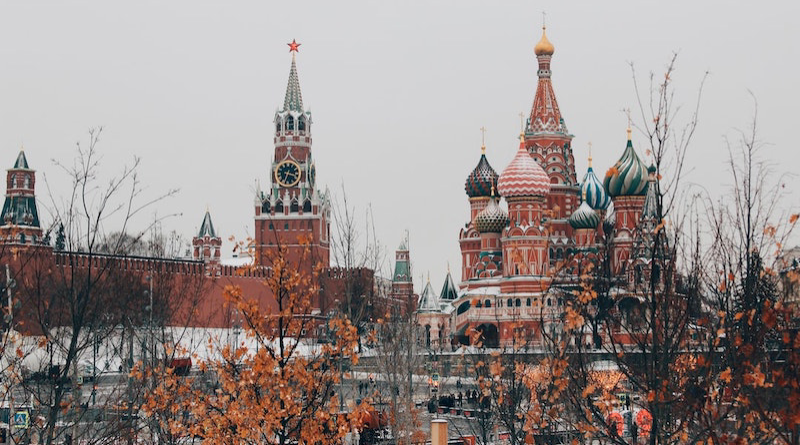The summer slog: What’s next for the war in Ukraine?
By Tara Sonenshine, Professor of Public Diplomacy at the Fletcher School of Law and Diplomacy
Americans and Europeans alike will flock to beaches this summer in hopes of a respite from extreme heat and humidity — but it is hard to find cool temperatures anywhere.
Meanwhile, in Ukraine, a, brutal, unrelenting battle for democracy is heating up, with daily drone attacks, destruction, death and misery inflicted by Russian forces fighting an unnecessary war, started over 500 days ago with an unprovoked attack on a peaceful nation.
The latest Russian attacks include bombarding the Black Sea port city of Odesa, striking grain terminals and other critical infrastructure.
With the NATO summit in the rear-view mirror, there are more promises of economic and military assistance to Ukraine, including long-range missiles from France, more tank ammunition from Germany, and newly arriving cluster munitions from the United States. Russian President Vladimir Putin is vowing to respond in kind, using his country’s own stockpile of cluster munitions if necessary.
And the United States has given the green light for Europeans to train Ukrainians on using F-16 fighter jets, an enormous boost to the war effort. (Ukraine also wanted from the NATO Summit clarity and concreteness of the timeline for its membership in the alliance, which it did not receive.)
On the Russian side, there are ominous signs of political fissures in Putin’s inner circle, with the recent firing of a top military general who spoke out about the problems his soldiers were encountering on the battlefield.
Major General Ivan Popov, who commanded the 58th Combined Arms Army, was dismissed after telling his superiors that Russian forces lack proper counter artillery systems and reconnaissance of enemy forces, resulting in the deaths of Russian soldiers. In a highly unusual public diplomacy moment, a four-minute audio recording emerged of Maj. Gen. Popov speaking to his troops about losing his job for speaking truth to power. Popov, who uses the name “Spartacus,” addressed his troop as “my gladiators,” and complained about his treatment by the Russian government.
Significantly, Ivan Popov led the assault on the Kharkiv region of eastern Ukraine in March 2022. His forces had occupied towns like Balakliia for six months until Ukrainian troops liberated the area, causing Russian forces to flee, leaving their weapons behind. During that period of Russian occupation of towns in the eastern part of the country, there are reports of torture and harrowing accounts of the mistreatment of Ukrainian civilians.
There is one bright spot.
In a story that has gotten precious little attention, the United Nations Children’s Fund (UNICEF), which has been operating in Kyiv since 1997, arrived in Balakliia as soon as it returned to Ukrainian hands. UNICEF opened the Spilno Child Spot in the city as a tented childcare center for Ukrainian kids to enjoy socializing after months of living without school. The simple act of children being able to draw and play has brought hope to the town.
As Russia focuses on its next military moves, the other political fissure involves the mercenary soldiers who make up the infamous “Wagner Group” — a saga still unfolding.
After the strange events of June 23 when their chief, Yevgeniy Prigozhin, sought to topple the Russian military with a march toward Moscow, there are now signs that the Wagner Group is reassembling in neighboring Belarus. The Belarusian defense ministry released video last week of the mercenaries training the country’s conscripts.
What all these moves in Russia and NATO promises for Ukraine mean for the actual pace of the war is an open question.
One hopes that Russia is feeling increased isolation as the war drags on. The Russian president will not attend a summit in South Africa next month, with signs that he risks being arrested anywhere he goes by the International Criminal Court. Expect to see more of Putin by Zoom at upcoming international gatherings.
And still, the daily reminders of the toll of war add up.
The death of a prominent Ukrainian writer, Victoria Amelina, after a June 27 Russian military strike on a popular restaurant, is an epic tragedy. Amelina had begun documenting war crimes for a book about Ukrainian women when she was killed. She was hoping to spend the fall semester at Columbia University in New York.
And there is the question of bread, with Russia pulling out of the United Nations deal that had allowed Ukraine to keep shipping grain to the world.
For the people of Ukraine, and those who have become refugees around the world, this is no summer of celebration.
For those of us who observe foreign policy, we will not stop focusing on the war, writing stories about Ukraine as often as the media will run them.
We will not look away until Ukraine is free and whole. It is the least we can do.
(This post is republished from The Hill.)

